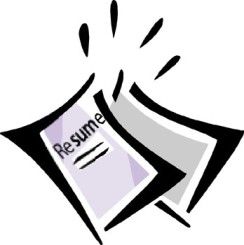5 First-Time Resume Concerns
5 common concerns and a few suggestions on how to overcome these.

1. Lack of Experience
This is probably the most common problem faced by students and new graduates. Try to fill this gap by focusing on skills you have acquired through school projects, coursework, volunteer activities, or part-time jobs. Did you maybe take a foreign language class in college? Do you have research experience? Skills such as these can help boost your resume.
2. No References
References shouldn't be listed on your resume itself, but a potential employer will ask you for references at some point. If you've hit a wall here because you have little to no experience, that's ok. Academic references are definitely acceptable, as are references from supervisors at part-time or volunteer positions. Do everything you can to avoid references from family or friends as these are not typically accepted.
3. Low GPA
If you're a student or recent graduate, a potential employer will probably want to see your GPA. If it isn't great (under a 3.0, for example), there are ways to get around this. You could try listing your major GPA (classes that applied towards your major) for example, as opposed to your cumulative GPA.
4. Length of Resume
Definitely keep your resume within the 1-2 page range. If you don't have much experience, you can probably get everything on one page, but try not to feel restricted by this number. Two page resumes are entirely acceptable as long as they contain relevant information.
5. Resume Format
Education or experience listed first? Everyone is different, so use your best judgment on this one. Generally speaking, students and graduates list education first, but if you have some amazing professional experience to highlight on your resume, list that first.





















